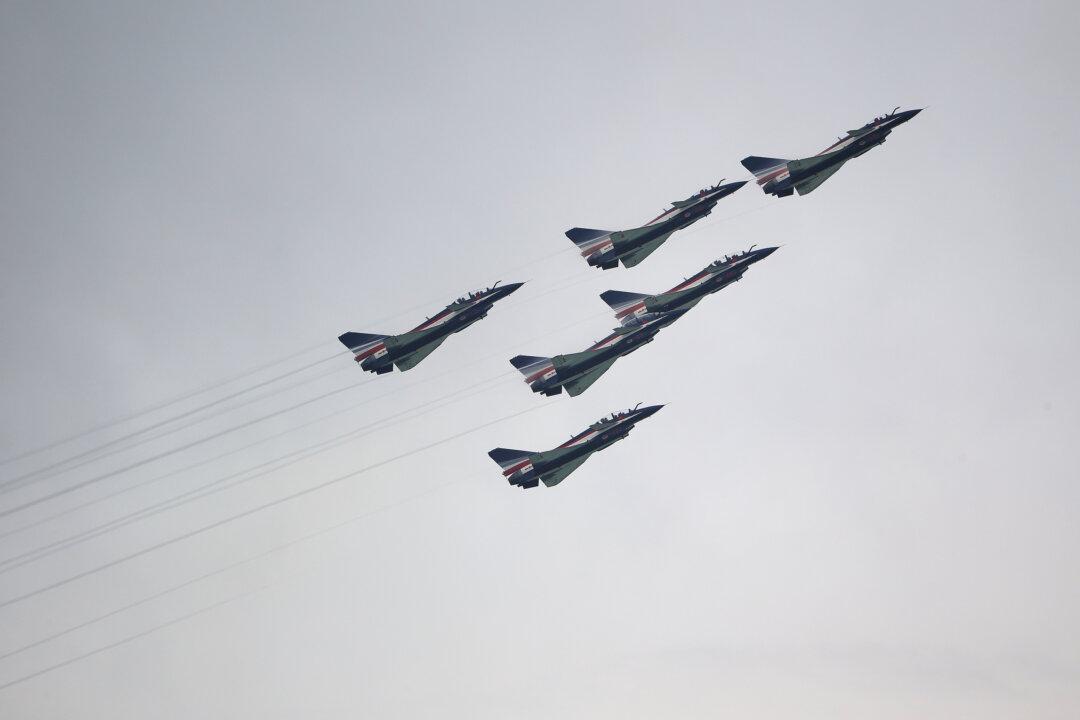The White House has expressed concern over China’s “provocative” military behavior towards Taiwan after Beijing sent 56 fighter jets into its air defense zone on Oct. 4, marking the fourth day of sustained military harassment against the self-ruled island.
Speaking at a press briefing on Monday, White House press secretary Jen Psaki urged China to put an end to its goading behavior which officials say threatens peace and stability across the Taiwan Strait and could lead to all-out military confrontation.




